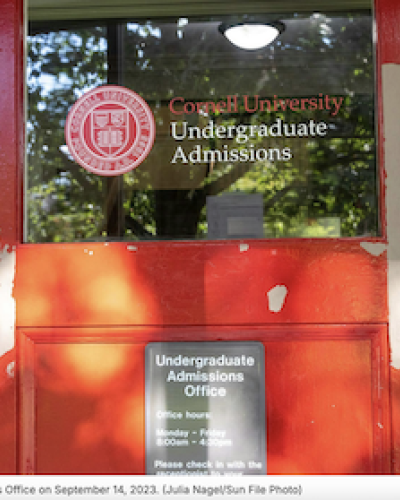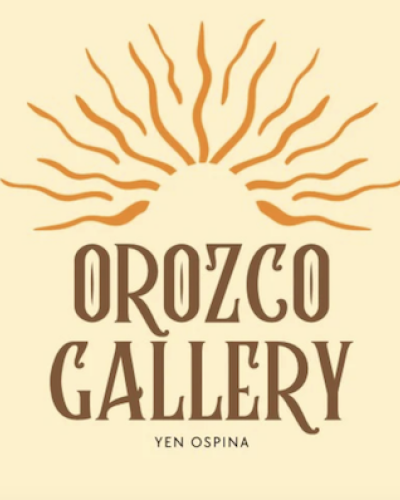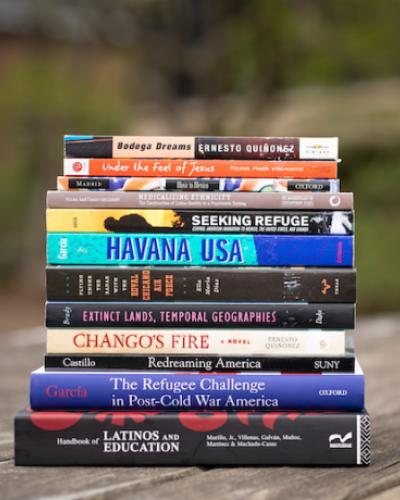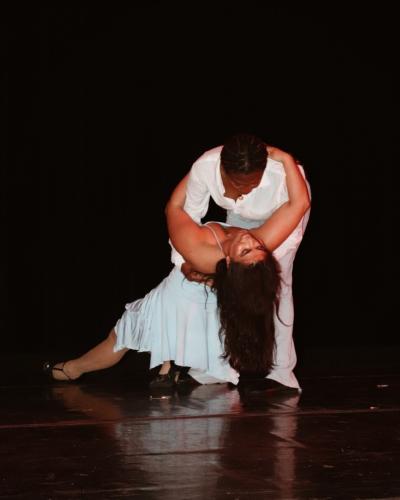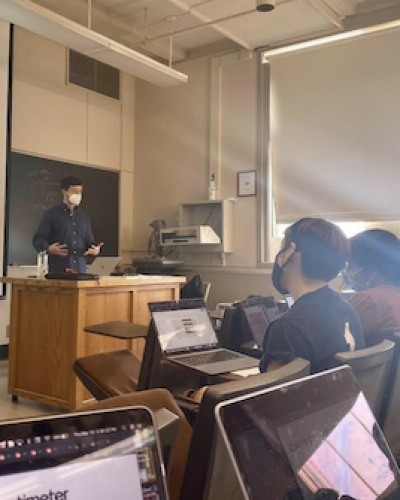Sitting at a table in the 4th floor Rockefeller Latina/o Studies Program library, Graduate student John Kennedy smiled when asked about why Latino Studies: "Latino studies has been a way to contextualize my identity" while providing a home for community building, knowledge, and engagement.
Kennedy's interests in Latin American Studies and related fields have wide-reaching roots, both academically and personally. As a scholar, he has always been "attracted to the interdisciplinary aspects of Latina/o studies." Kennedy's family immigrated from Guatemala to the states, specifically Los Angeles, in the 1980s. Valuing the opportunities to work with Central American communities, Kennedy finds that communicating with other people who share similar experiences such as code-switching is an integral part of his work.
He started his academic career with a Bachelors in Hispanic Language and Literature, English, and Anthropology from Temple University. Kennedy received a Master of Fine Arts in Creative Writing with a Latin American Studies Graduate Certificate from the University of Pittsburgh and a Master of Arts in Spanish Language and Literature from Cornell. He is currently a Ph.D. candidate at Cornell studying Hispanic Studies and Comparative Literature with a concentration in Latina/o Studies, Latin American Studies, and American Studies.
Hence, the opportunity to teach a class like LSP 2100 Introduction to Latinx Studies was a chance to connect with other people from different Latinx backgrounds, as Kennedy sees "a lot of room" to explore phenomenons within race such as code-switching. Kennedy doesn't have much family in the States, so exploring Latinx and American studies allows other people with similar bi-cultural backgrounds to connect.
Code-switching is a concept that can be used in a multitude of ways. He remarked that a favorite moment from this class was when he said "gracias" in "an American way," or without a Spanish accent. Although a hilarious moment, it’s evidence of Kennedy attempting to "do too much" at such a fast pace when he just returned from online classes via Zoom. With classes for the Spring semester starting in January 2022, he only received word that he would be teaching this class in December 2021 (when he was in Central America).
Starting "to read non-stop," he enjoyed the works of many Chicano and Latinx authors/activists such as Américo Paredes, most of which he implemented in class readings. To his surprise, "students reached out saying 'thank you for allowing me to explore my identities and to learn with other Latinx people.'"
Kennedy also spends a decent amount of time trying to show how content in his class relates to today's current society with immersive sessions like Senator Jessica Ramos meeting with the class; it's "very inspiring to see someone, aside from AOC," as someone in politics to look up to, especially someone who is Colombian-American. Sometimes, it's shared food that brings people in class together, which is just as important and influential.
"I hope that students get whatever they're interested in out of this class and that they find it inspiring," Kennedy elaborated. Hoping for students to develop more tools for their academic and personal lives, he also hopes for more students to take this class in the future and minor in Latino Studies. Any field in ethnic studies "in general is something that can ground any career." When explaining what he hopes students would take away from this course, Kennedy also reflected on his younger self and experiences: "life is short, eat more sopes, and don't be afraid to travel by yourself."

